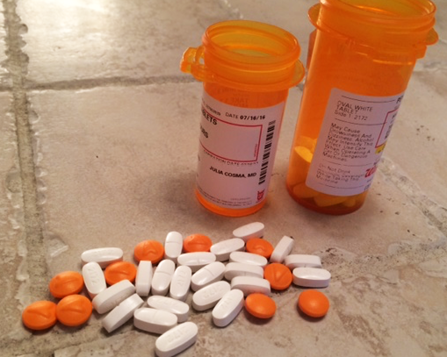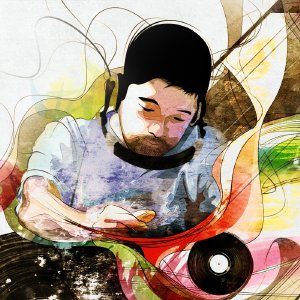How to Identify Someone Addicted to Painkillers
America is experiencing a national tragedy – more than 40,000 drug-related deaths each year. More than half of these are from opioids – naturally-derived opiates like heroin or morphine, or synthetics like oxycodone, hydrocodone or fentanyl. The hard thing about detecting painkiller addiction is that for some people, it can take years for the signs to become obvious, so much that they are often overlooked. To help families identify painkiller abuse and addiction earlier, Narconon offers this description of both early and late-addiction signs of painkiller abuse.
A Slow Start
For most people, painkiller addiction starts off slowly, often with a legitimate prescription for pain after an injury or surgery. In the past, it was common for doctors and dentists to send a person home with 30 days of painkillers for a minor injury – they were carefully indoctrinated into this practice by pharmaceutical reps. So a young person getting wisdom teeth removed or suffering a sport injury, or an older person with temporary low back pain came home with a bottle of pills. The pain faded to a tolerable level or maybe it was gone in three to five days but that bottle of pills just sat there in the medicine chest. Waiting for a susceptible moment in someone’s life.
A week or month later, maybe there was conflict in the person’s life and he’s upset and feels physically bad. He thinks about how mellow he felt on the painkillers and he goes to the medicine chest and takes one. Or two. Right away, the drugs not only make the emotional and physical pain go away, they also cloud the person’s judgment, making him think that it’s going to be okay to take a few more later on. So he does. And then a few more after that. He’s on his way to addiction.
Recreational Beginnings
Some teens and young adults get their start abusing painkillers by using them recreationally. He’s at a party and someone is snorting crushed hydrocodone or oxycodone. Someone invites him to snort a line of these drugs and he does. After all, they are prescribed by doctors. They must be safer than street drugs, right? He feels all warm and relaxed and any stresses just melt away. The next weekend, he shows up with a few pills he pilfered out of the medicine chest at home. He can’t wait to get that same feeling again. This person is also on his way to addiction.

In so many cases, however, the family of these individuals don’t realize their loved one is an addict for a long time. Yes, there were some strange problems and his personality seemed to change. But he always had excuses for his upsets and odd behavior. Until there is an overdose or the pills are found, it can be hard for a family to realize that addiction has struck their family. Even a spouse can be fooled – sometimes for years.
Finally, the person’s life will begin to come unraveled. Now, it’s going to be obvious to everyone that there’s some serious drug abuse going on. The family will start talking about rehab.
Keep reading to learn how to identify someone addicted to painkillers as quickly as possible so you can offer effective help much faster.
Signs of Painkiller Abuse
There are physical, emotional, mental and behavioral signs of painkiller abuse. Here’s what to look for.
Physical:
- Sleepiness, fatigue
- Complaints of constipation
- Pupils constricted
- Slow movements or reactions
- Itching
- Irregular sleep patterns
- Loud snoring or irregular breathing during sleep
- Dry mouth
- Cough
- Runny nose
- Nausea, vomiting
- Low blood pressure and light headedness
Some drug users will mix an opioid like oxycodone or hydrocodone with a prescription or illicit stimulant like cocaine so they may not show all the classic signs of opioid abuse like fatigue and drowsiness.
Later in addiction, the drug user will often experience weight loss. If he is an injecting drug user, he may start to wear long-sleeved shirts and long pants, even in summer, to cover the marks. There may be skin infections or problems with lungs, like pneumonia. The person will stop keeping himself clean or groomed.
If he runs out of drugs, he may seem to have a terrible case of the flu with nausea, chills, fever, vomiting, diarrhea, headache and all-over pain.
Mental and emotional signs:
- Fogginess
- Poor memory
- Confusion
- Mood swings
- Depression
- Poor concentration
Behavioral signs:
- Money unexpectedly missing
- Valuables missing from their possessions or from the household
- Prescriptions missing from medicine chests in the household or the home of family members who are sick or injured
- Asking for unusual amounts of money, always with a good excuse
- Caught committing some crime like robbery, forgery, prescription fraud or assault
- School or work performance falls off
- Lost jobs or school dropouts
- Outbursts of anger, especially if anyone challenges them on any of these signs
- Increasingly secretive and private
Finding Their Drugs
If pills or other drugs are found, the individual will deny use, usually vigorously, and put the blame for problems and suspicions on the person who found them. The person may have prescriptions from more than one doctor, although in some states, an online Prescription Drug Monitoring Program makes it easier for doctors to tell who is going from one doctor to another to get prescriptions.
When a person is addicted, her life patterns will begin to change. She will become more isolated and drop her usual friends. She will begin to hang out with new friends who are using drugs. There may be an addicted or drug dealer boyfriend and for a male, an addicted girlfriend.
If parents or other family challenge the individual and accuse him of using drugs, he may take off rather than deal with the challenge. Despite the family’s attempt to help, he may start living on the streets instead of accept help.

When fully addicted, the drugs seem to be making all the decisions. The individual will say and do things he never would have said or done if not using powerful opioids. His instinctive morals will deteriorate and he will probably commit crimes unless he has enough of his own money to buy drugs.
Eventually, he will be obsessed with having and using opioids, with always making sure he has enough of the drug on hand so he doesn’t get sick from withdrawal.
Detecting Opioid Addiction
The tricky part of addiction is that the drug user is trying to keep all these signs a secret. The addicted quickly learn how to manipulate those around them so the drugs keep coming, whether it’s wheedling money out of someone or getting them to stop asking questions.
There are always signs of painkiller abuse. Every one of them will be explained away so just expect this. The drug user will ask, “Don’t you trust me?” and may even cry because he is so upset about being suspected. Or he will turn things around so it’s his wife or his parents’ fault he’s not doing well and dropping out of school or unemployed.
The secret is to believe the signs of use, not what you are told. You are going to have to pry into the person’s life and verify his stories. Perhaps you will want to drug test an underage person. That’s your choice. Some people choose to thoroughly inspect a person’s room and belongings to find drugs. Other people feel this is an invasion of privacy.
You will have to make your decisions based on the fact that if you see these signs, your loved one’s life is at risk. Any day, he could use a little too much of a drug and that could be his end.
In many cities and states, these are desperate times. Saving lives from painkiller abuse will require taking action you may not be comfortable with. But that is far better than losing a loved one to an overdose or drug-related death.
Our best wishes are with you. Call us if you need help with recovery. For fifty years, the Narconon program has been helping the addicted recover the freshness and joy of sobriety with our drug-free program.
Call Narconon Ojai today to learn more: 1-877-936-7435.


